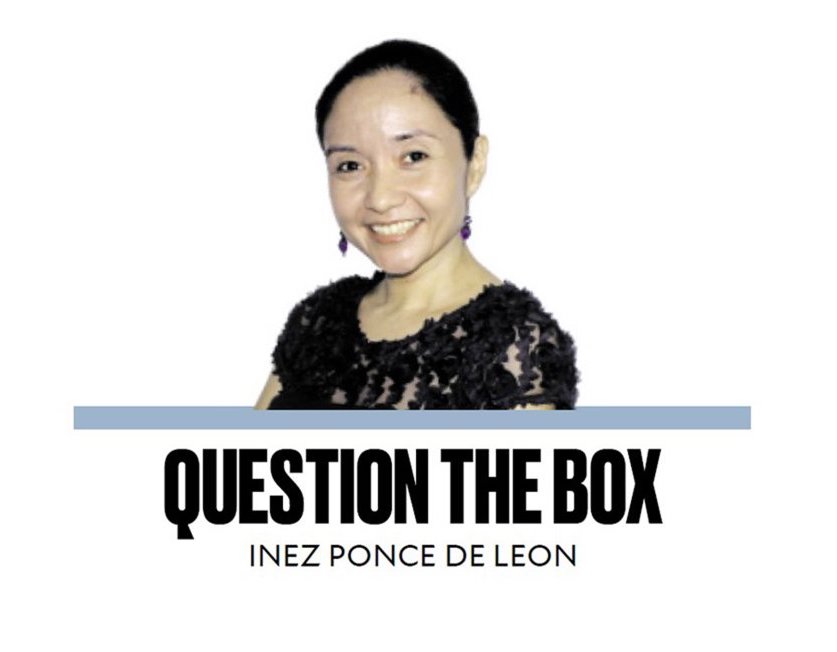A long history of laughter and rebellion

Last week, I met my former students for lunch, a reunion 20 years in the making.
They were my students back in my days as an instructor at the National Institute of Molecular Biology and Biotechnology, at a time when fresh graduates were allowed to teach major laboratory and lecture courses.
They are around three years my junior, but back then, our conversations were often framed within my position of authority in the classroom. I assessed their experiments, gave lectures, graded lab reports, and led discussions on the social implications of molecular biology.
Twenty years later, we all feel like we’re the same age (even if they still call me “Ma’am”) and our conversations are lighter, filled with what my former student called “fart-inducing” inside jokes.
Our conversations have also equalized, turning into a confluence of real-world concerns: perimenopause, annual health checks, our own students, people spewing vitriol and bewildering idolatry online.
Recognizing, and fighting against injustice.
This was my first batch of students. We marched together from University of the Philippines Diliman to the Edsa Shrine in 2001 to call for the resignation of then President Joseph Estrada. We were all idealistic, it seemed: We argued from the data, could take criticism based on logic, valued the ability to reason.
Two decades later, I still see the same faces of the students who both labored in silence and took to the streets to speak up against a corrupt government. I still see the same faces of the students who once debated in the classroom, now talking about their own frustrations as they told stories of the battles they had to fight.
One works in a government institution where “diversity” has become a dirty word. Another has to deal with bureaucrats who shrug their shoulders helplessly at national issues. Another has to deal with bosses who don’t consult with their employees and then make hasty top-down decisions. Another talked about Ph.D. students who never finished their degrees and even left the sciences, all because of bullying from senior faculty.
There was the story of a once-promising hire eased out by an envious, soon-to-retire senior worker. There was the story of how a young female professor was belittled and called un-collegial because she contradicted popular opinions held by largely older, male faculty.
There were succession issues because senior management picked on the junior hires who didn’t play politics. There was backbiting, gossiping, poisonous tension.
My former students were frustrated with the systems in which they found themselves, but they promised not to leave—for who would be left then, but those who would perpetuate the toxicity?
Many people say that activism eventually fizzles out when reality comes knocking. And yet at its deepest, the spirit of fighting against broken systems is no mere lip service: it is a long battle for those who are always willing to keep their eyes open to injustice, to speak out when they see it, but to also listen to all ideas instead of dismissing them outright.
And it is a battle that should not end after graduation, because we must keep questioning privilege and calling out abuse. We must continue to hold ourselves, our peers, and our government to the same high standards. The classroom is the staging area; the outside world is the battlefield.
It’s no wonder then, that those of us still in the academe are disappointed when students drag their feet through college, focus their attention on their field alone, and fight with only the barest minimum of effort.
One of my former students, for example, spoke of still having to teach her third-year college students how to write an essay after they answered her exam question with barely comprehensible responses.
“You don’t just write whatever you want in any order you want,” she told them, “You have to write your answer step by step, logically.”
A student raised their hand and asked, “So, ma’am, do you mean we just have to answer the question?”
We all gasped at the student’s response. What my former student was teaching wasn’t just writing. She was teaching how to assemble an argument, consider the needs of the reader, critically examine an issue, and articulate one’s opinions cohesively.
Once transferred, these comprise the skills of fighters who want to change broken or abused systems, and who must do so with tools that are incisive and deliberate.
The student’s question saddened us because it seemed that basic education was churning out students who prized compliance over criticality, who equated collegiality with agreement.
There is hope, however. One of my former students brought her son along to the reunion, and he and I talked about his experiences in high school. Like his mother, he fights: he speaks up about people who abuse their privilege, those who steal, those who do not listen first before passing judgment.
That’s the thing about real fighters. We’re here for the long game.
And we’re just silently training the next generation.
—————-
iponcedeleon@ateneo.edu


















